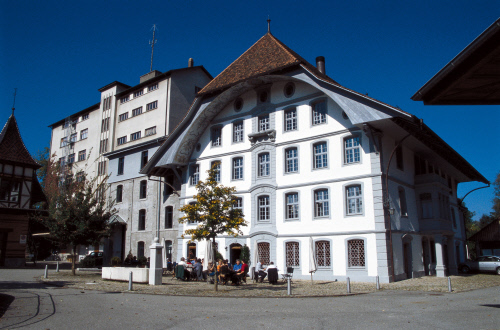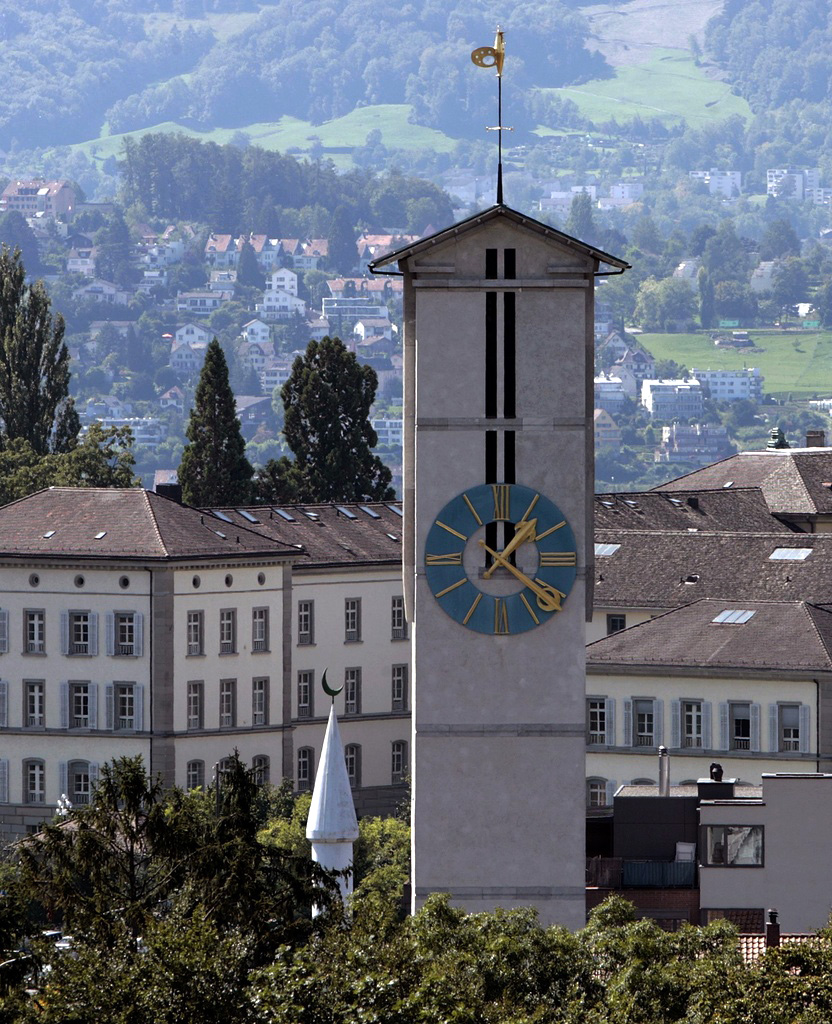Minaret vote “helped Muslim understanding”

It is one year since the Swiss government initiated regular dialogue with the Muslim community following a vote to ban new minaret construction.
swissinfo.ch spoke to Amira Hafner-Al-Jabaji, a Swiss of Iraqi origin and one of those involved in the dialogue, about what had changed since November 29, 2009.
Hafner-Al-Jabaji is president of the Interreligious Think-Tank which seeks to promote religious peace in the country and opposes fundamentalism.
She told swissinfo.ch the controversial vote had merely highlighted an existing need for dialogue between the Swiss authorities and the Muslim community. She said one positive thing one year on was that the dialogue had moved away from security issues to that of the integration and participation of Muslims in Swiss society.
swissinfo.ch.: After the vote on banning minaret construction, the government accelerated the consultation process. What results do you see one year on?
Amira Hafner-Al-Jabaji: From the Muslim side we have been able to make clear what our issues are, what our priorities are and what our understanding is of a sustainable dialogue. There are many different Muslim organisations, representatives, issues and priorities. But there has never been a real sustainable assembly or group that is willed to go on working, solving problems and making projects etc…
But this dialogue has led us to find ourselves together and to promote a mutual understanding among Muslims themselves. So it’s a very important step for the Muslims themselves as an internal dialogue.
swissinfo.ch: Are Muslims in Switzerland now able to continue this dialogue among themselves, without the involvement of the government?
A. H-A-J.: We have to see that there are two main priorities. One is the dialogue with the government because in society there are difficulties, judicial difficulties, after the outcome of the anti-minaret initiative…
The other thing is that the image of Muslims and of Islam is something that has to be solved by Muslims themselves. They have to take action, they have to find out how they can cooperate, integrate, participate more in society in a positive and constructive way. The one activity does not make the other unnecessary. We have to go in these two directions.. . So far it was always Swiss society and the Swiss and cantonal governments that set the agenda and the Muslims just had to follow. Now I hope Muslims will be more able to set their own agenda.
swissinfo.ch: Muslims in Switzerland face a lot of problems in different domains – employment, professional training etc. Did you discuss with the government how these problems can be tackled?
A.H-A-J.: The government has defined several fields where they have to get active and we also discussed how we can be active in these fields. One of these was how to make Muslims more fit for the economic [job] market, another is how to deal with the media and a third is issues in the field of health…
Now we have to find what kind of projects we as Muslims, and without the help of the government, can promote. I would say regarding an internal Muslim dialogue that we are at the very beginning. But the beginning is always the most important step. And we are really willed to start initiatives and activities in society. But I want to stress we are not doing this as Muslims for Muslims but in the understanding that we are first of all citizens in Switzerland. We are doing this for the sake of society as a whole…
swissinfo.ch.: Concerning integration, has the dialogue helped reach agreement about the concept itself?
A.H-A-J.: …From the government side, it [integration] is the issue of language, being fit for the [job] market. But I claim that in Swiss society there is another feeling of what it means to be integrated and this differs greatly from the lawful thinking. So this gap has to be filled… It cannot mean that Muslims or any other group have to be assimilated and give up their faith and way of living. I think we could make clear that we have a difficulty with society’s understanding of what it means to be integrated…
swissinfo.ch.:Some women have difficulty finding work because of their headscarf, and the government cannot do anything to help. Is it possible to invite economic partners to participate in this dialogue?
A.H-A-J.: Yes, absolutely. It’s not a general situation that women who wear the headscarf are not allowed to work. I think the government is willed to be a role model in this regard. And also other big enterprises in Switzerland are aware that the headscarf is not an issue when it comes to laboratory work or whatever. It is more in the public area. We have to raise awareness that it causes no problems when a woman wears a headscarf in public. This is the next step. First we have to make clear that in a society that recommends education and economical fitness, headscarves should not be an issue.
swissinfo.ch.: In recent years the media in general have played an active role in stigmatising the Muslim community. How can the government help change the situation?
A.H-A-J.: The freedom of the media is one of the pillars of a democracy. Of course the government is very limited in how it can affect the media and how they push their content. But what they can do, and are willed to do, is to raise awareness among journalists. A national research project showed there is not enough knowledge about religion and specifically Islam among journalists. So steps need to be taken in the education of journalists and how they treat issues regarding Islam.
But as Muslims, we actually have to intervene much more with the media than we have done. We should take action to declare and define the real problems.
swissinfo.ch.: Finally, are you optimistic about this dialogue?
A.H-A-J.: I am absolutely optimistic because I see there is a wide mutual understanding among Muslims taking part in this dialogue and that helps to make very clear what our priorities are…
The Muslim community in Switzerland accounts for about 4.5% of the population.
Most Muslim immigrants came from the former Yugoslavia and Turkey. The community includes up to 100 nationalities.
The number of Muslims doubled between the censuses of 1990 and 2000, largely boosted by an influx of refugees and asylum seekers, including from the war in the former Yugoslavia.
There are about 200 mosques and prayer houses in Switzerland, but only four have a minaret.
On November 29, 57 per cent of voters supported a people’s initiative to ban the construction of new minarets in Switzerland. This was in the wake of heated debates and legal battles at a local level about requests by mosques to build more minarets.
In recent years, both mosque and minaret construction projects in many European countries, including Sweden, France, Italy, Austria, Greece, Germany and Slovenia have generated protests, some of them violent.
Born in Bern in 1971, to an Iraqi father and German mother.
Studied Islamic studies, Near Eastern philology and media studies at Bern University.
Since 1996 a freelance commentator on subjects connected with Islam and interreligious dialogue.
(Adapted by Morven McLean)

In compliance with the JTI standards
More: SWI swissinfo.ch certified by the Journalism Trust Initiative













You can find an overview of ongoing debates with our journalists here . Please join us!
If you want to start a conversation about a topic raised in this article or want to report factual errors, email us at english@swissinfo.ch.